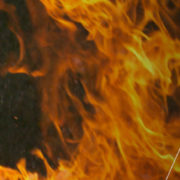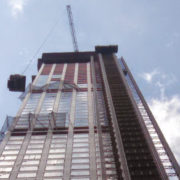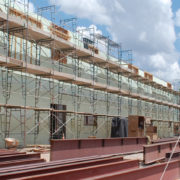Fire Stopping And The Law
- Cables
- Pipes
- Ventilation systems
Access to these services requires there to be gaps between the fire-resistant elements. These must be sealed so that the integrity of the elements is maintained.
What National Regulations Cover Fire-Stopping?
- Building Regulations (England and Wales) 1991 – These regulations are expressed as functional requirements There is an accompanying document (Approved Document B Fire Safety gives non-mandatory guidance.
- Building (Scotland) Regulations 2004 – Mandatory standards found in Schedule to Regulation 9. Guidance is given in Section 2 of Domestic and Non-domestic Technical Handbooks.
- Building Regulations (Northern Ireland) 1994 – Functional requirements with approved solutions are given in Technical Booklet E.
- Building Regulations (Republic of Ireland) 1997 – Building Regulations in the Republic of Ireland are arranged similarly to the England and Wales Building Regulations and are covered by Technical Guidance Document B.
Why is Fire Stopping Mandatory?
“Compartment walls and compartment floors (including a fire resisting ceiling) are intended to prevent fire passing from one compartment to another. Openings and service penetrations through these walls or floors can compromise their effectiveness and should be kept to a minimum. The solum and roof space should not be forgotten. Openings and service penetrations should be carefully detailed and constructed to resist fire.” (2.1.15)
“Where a wiring system passes through elements of building construction such as floors, walls, roofs, ceilings, partitions or cavity barriers, the openings remaining after passage of the wiring systems shall be sealed according to the degree of fire resistance required of the element concerned.” (527-02-01)
“Where a wiring system such as a conduit, cable ducting, cable trunking, busbar or busbar trunking penetrates an element of building construction having specified fire resistance it shall be internally sealed so as to maintain the degree of fire resistance of the respective element as well as being externally sealed to maintain the required fire resistance.” (527-02-02)
Why Should All Firestop Products Be Tested?
Approved Document B states the following on the subject of testing:
“the….product…should be in accordance with a specification or design which has been shown by test to be capable of meeting that performance or have been assessed from test evidence against appropriate standards.” (Appendix ‘A’ 1a)
“Provide…propriety fire-stopping and sealing systems which has been shown by test to maintain the fire resistance of the wall or other element.” (10.19)
Regulations and Guidelines
Why is it Recommended That Specialist Contractors are Accredited to a Third-Party Scheme?
Approved Document B states the following on the subject of accreditation of contractors:
“Third party accreditation of installers of systems, materials, products or structures provide a means of ensuring that installations have been conducted by knowledgeable contractors to appropriate standards, thereby increasing reliability of the anticipated performance in fire.” (0.15)
All of our contractors are members of FIRAS. FIRAS is a UKAS certification scheme run by the Warrington Fire Research Establishment.
Fire-Stopping and Liability
Regulatory Reform (Fire Safety) Order
The Fire Safety Order applies to all workplaces within England and Wales with the exception of mines and workplaces that occur offshore. Every employer or building owner appoints a ‘Responsible Person’ who ensures the company’s compliance in the regulations the order stipulates.
One of the pivotal duties that a ‘Responsible Person’ performs is the undertaking of an annual risk assessment on the building which includes identifying potential features that could promote the spread of fire and the steps that are going to be taken to reduce the likelihood of those features contributing towards a fire.
In Scotland, The Fire Act 2005 applies in the same way as the Fire Safety Order.










Leave a Reply
Want to join the discussion?Feel free to contribute!